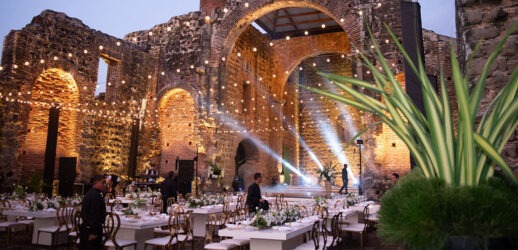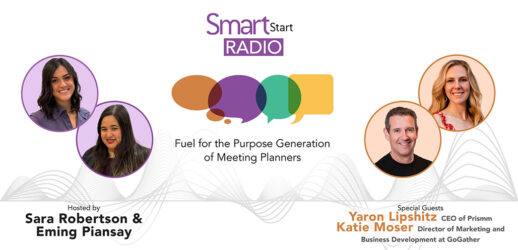Lead your team by managing your expectations
Just like people, planner teams have personalities. While the nature of teams has shifted since our tribal hunter-gatherer days, teams are still one of our most crucial social structures. This is true in most organizations, and particularly the case in high-stress event planning groups. How we introduce hopefulness into our teams can be the difference between joyful collaboration and frustrating second-guessing.
While you may not always have the luxury of hand-picking your team members, the more you understand the personalities involved, the more you’ll be able to predict and manage the group dynamic. See if you recognize yourself and your co-workers in the list of team member archetypes below.
The Visionary
- Creative
- Big Picture
- Imaginative
- Future-focused
Visionaries are the creative engines of the team machine. Though they may sometimes seem lost in the clouds, it is precisely their ability to dream—and dream big—that can bring a breakthrough idea to the team. These creative types aren’t just found in positions like marketing or design. Learn to tolerate their flights of fancy and give them encouragement to express their thoughts, and you may find they’re full of fresh process and people solutions that can help solve even the thorniest problems.
The Driver
- Focused
- Opinionated
- Outcome-oriented
- Communicative
Drivers are the leaders who keep the team focused and moving forward. Often, these are designated leaders, but in flat teams or organizations where everyone is meant to be equal, leaders often emerge naturally. If there’s no clear leader, one of the first team tasks should be to choose someone to direct the team. Typically, that person will be charged with guiding group discussions, assigning roles and managing conflict—in short, keeping the team moving efficiently toward the end goal.
The Diplomat
- Influential
- Harmonious
- Relationship-oriented
Like the Organizer, the Diplomat is focused on the common good. Diplomats are relationship-builders and talented team players who can soothe ruffled feathers and bring out the best in others. They may not always like to take the lead, but they’ll happily weigh in with their own thoughts and encourage input from others. Respect their emotional nature and appreciate their calm demeanor, and you’ll have a connector who can rally the team even in the most difficult moments.
The Expert
- Opinionated
- Knowledgable
- Outcome-oriented
- Communicative
- Future-focused
Though everyone on the team should have skills that allow them to contribute to problem-solving and organizational growth (except for the Wild Card), there should be at least one person on the team with deep subject matter knowledge. The Expert is the go-to answer person on the problem at hand, a skilled researcher and someone who can pose and answer the questions no one else even thought to ask. Treasure them.
The Naysayer
- Disruptive
- Innovative
- Challenging
- Idea-people
Contrarians of the corporate world have gotten a bad rap for being negative. But that’s actually their blessing. If you can put up with the Naysayers’ occasional sourpuss style, you’ll discover that their out-of-the-box way of looking at the world can bring an enormous amount of innovation to the group. Deal with their disruptive attitudes, listen to their wild ideas, embrace their sometimes-unusual methods, and you may strike gold.
The Organizer
- Process-oriented
- Detailed
- Supportive
- Team-focused
With a strong organizer on board, the team leader may be able to shift some of the administrative activities. Organizers are process-oriented and often adept with lists, calendars and charts. Rather than impose their will on others (as some Drivers tend to do), they love to put systems in place to create an atmosphere of order and harmony where everyone can thrive. Be grateful if you have someone like a former assistant of mine who told me proudly at our initial interview, “I live to organize.” It was music to my Driver ears and the beginning of a long and fruitful relationship.
The Wild Card
- Creative
- Fresh thinkers
- Challenging
- Info-seekers
Not every team needs a Wild Card, that is, a person who comes from a completely different discipline and might not normally interact with the group. But by bringing a Wild Card onto a team or even just an occasional meeting, particularly brainstorming sessions where all ideas are welcome, you may get some great surprises. People who are new to the organization or business unit can often be great Wild Cards, bringing fresh perspectives and competitive knowledge that can be invaluable.




